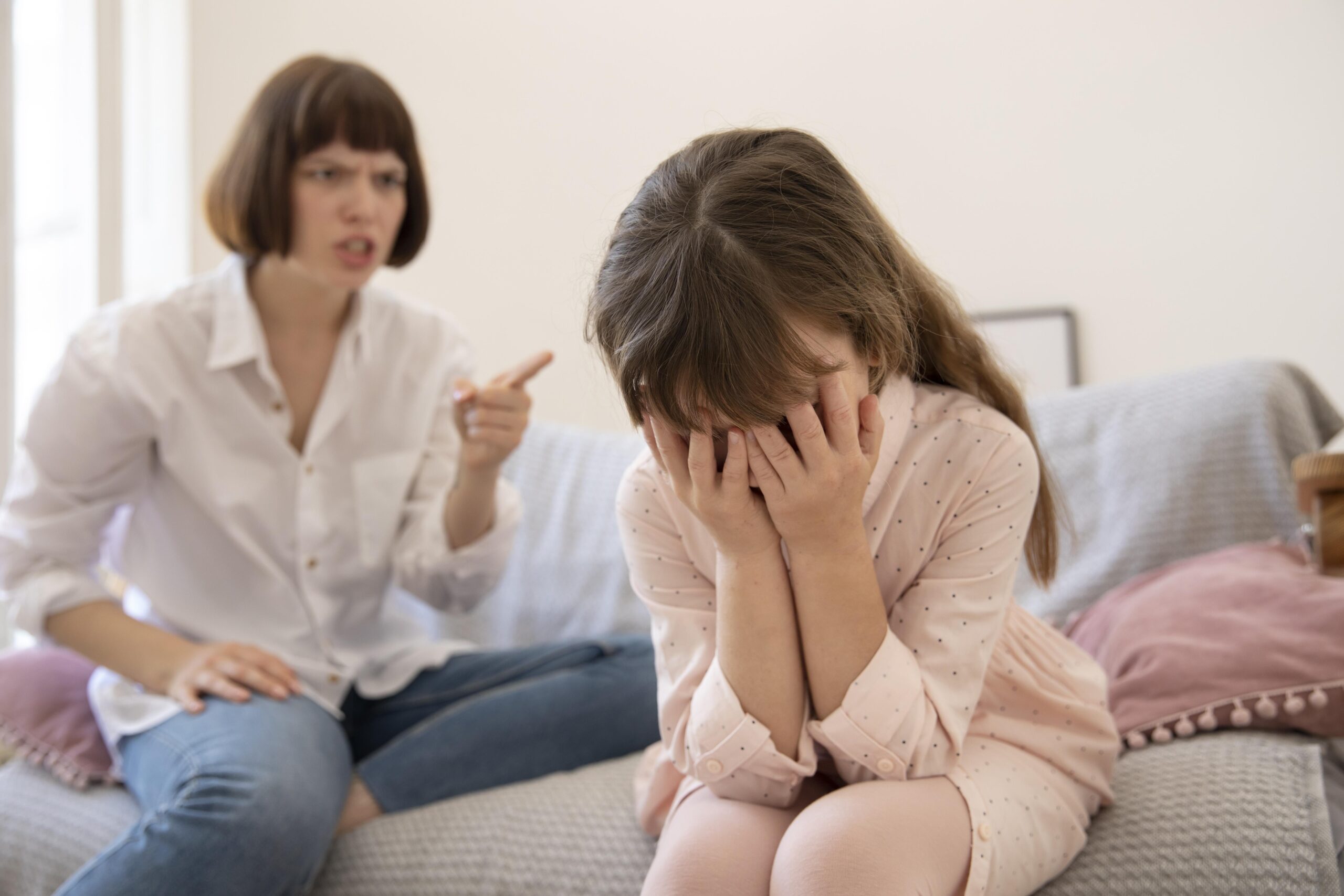We can agree, we’ve all yelled at our children at some point. After the tenth warning for a child to do something, or to finally stop doing something, and upon being ignored… Yes, we resort to yelling. Most often, in that burst of frustration, everything we’ve ever learned about positive parenting disappears as if it had never been there.
How useful is yelling?
Parents can find a million reasons why they yell, but let’s put excuses aside for now. Let’s think about this: Have we ever felt good, motivated, and cheerful after someone yelled at us?
Certainly not.
New research has shown that yelling at children can be just as harmful as hitting them; in a two-year study, the effects of harsh physical and verbal discipline were found to be frighteningly similar. It’s highly likely that a child who is yelled at will exhibit problematic behavior – aggression, anger, a desire for physical confrontation… And that will only lead to more yelling. It’s a sad cycle with no end, in which no one feels good. “But our parents yelled, and they hit us, and look at us – we turned out fine!”
Losing control and frustration with children’s behavior should not be justified by our parents’ patterns. This is a perfect proof that yelling and physical punishment do not change anything – but this method of
Psychotherapist and clinical supervisor Elana Shurs believes that “yelling is justified when we want to convey urgency with our voice.” So, a loud “Hey, don’t put your finger in the socket!” is not abuse. “What is harmful is explaining and insulting through yelling. Children have an extremely sensitive nervous system.
Yelling is stressful for them, and the facial expressions that accompany yelling are frightening,” Elana adds. “Stress implies the release of the cortisol hormone, which has the power to alter the structure of a child’s brain.” A child does not become more cautious, quieter, or change their behavior out of fear after being yelled at by a parent.
The fear of dependence on someone creates an excellent basis for developing anxiety, aggression, and a poor self-image in a child. The child gets the impression they are bad and worthless, since the parent is so frustrated by their behavior. A child exposed to yelling and humiliation will become an adult who wants to please everyone, putting their own needs aside.
What can we do if a child is disobedient?
- If you feel a surge of anger, pause. Count to 10. Then tell the child where they went wrong. Be clear and serious, there’s no need for yelling; everything can be said in a normal tone of voice.
- Establish eye contact with the child. The child will know from your look that they are doing something wrong. When they pause, tell them that such behavior is unacceptable, but it can be corrected, and then tell them how.
- If you think yelling, humiliating, and insulting are the only effective disciplinary measures, ask yourself if you would yell, insult, and humiliate your child in front of a person of authority who matters to you, like your boss or colleagues at work?
- Show your child understanding and respect, and give them attention. Their unacceptable behavior probably stems from a lack of one or all three of these things. Respect leads to trust, and trust to a sense of security. Security provides authenticity and freedom, meaning – a mentally healthy child who will one day become a healthy adult. Isn’t that the common goal of all of us?
Timea Kukla


